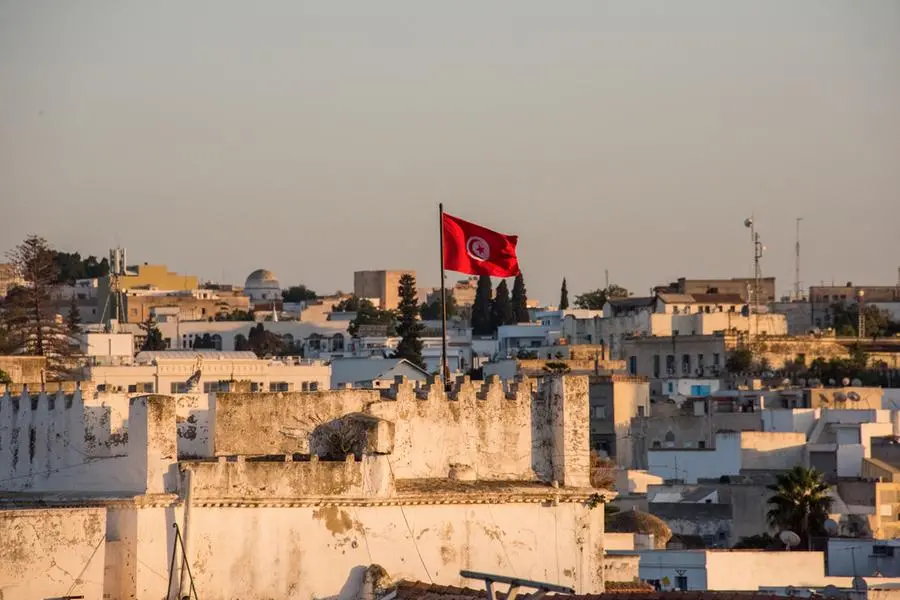PHOTO
Tunisia - The Council of Ministers, which met on Thursday morning at the Government Palace in the Kasbah, approved, after deliberation and discussion, a number of draft laws and decrees relating to the financing of the national programme for the sanitation of working class neighbourhoods and the remuneration of telemedicine, according to a statement issued by the Prime Ministry.
Among the draft laws approved is one adopting a loan agreement signed on June 25, 2024 between the Republic of Tunisia and the French Development Agency (AFD) to help finance Part VI of the national programme for the sanitation of working class neighbourhoods.
It will cover 139 districts with a population of 261,000 spread across most of the Republic's governorates.
It will also make it possible to connect 40 schools with around 20,000 students, a centre for people with disabilities and 18 primary health centres in these working class neighbourhoods to the public sewage network and provide them with internal sewage systems, according to the statement.
The Council also approved a draft decree on the remuneration system for telemedicine in the field of medical imaging in the public sector, which is part of the digitalisation of health services provided by public health structures.
The draft decree will provide the appropriate legal framework to allow the recruitment of direct public sector doctors who, in addition to their main duties, provide telemedicine clinics in the field of medical imaging for the benefit of structures other than their own which lack specialised doctors.
This will motivate them to join the telemedicine system and strengthen national efforts to address the lack of specialised medicine in the interior regions and facilitate citizens' access to health services, the statement said.
In this context, it was recommended to continue working to exploit the promising prospects of digitalisation to achieve the virtual health revolution and to keep pace with current trends in virtual healthcare.
The Council of Ministers also approved:
- A draft law approving the loan agreement signed on June 25, 2024 between the Republic of Tunisia and the French Development Agency to contribute to the creation of a financing line to support small and medium-sized enterprises for economic recovery.
- A draft law approving the amendatory annex to the loan contract concluded between the Central Bank of Tunisia on behalf of and in favour of the Tunisian State and the African Export-Import Bank for the financing of the State budget.
- A draft law approving the agreement for the production of electricity and the site lease contract and their annexes for the solar plant of “Sakdoud”.
Prime Minister Kamel Madouri, who chaired the Council of Ministers on behalf of President Kais Saied, praised the spirit of responsibility and cooperation between the executive and legislative branches during the preparation and discussion of the draft Finance Law for 2025, which was approved by the joint plenary session of members of the Assembly of People's Representatives and members of the National Council of Regions and Districts.
In this context, he urged all ministries to finalise all relevant legal texts or implementing texts for the Finance Law in order to enable the practical implementation of the various provisions and requirements of the Finance Law in a timely manner and to enable the implementation of the unprecedented measures taken to support the foundations of the social state.
The Prime Minister also urged responding to the people's aspirations and accelerating the implementation of the provisions of the 2025 Finance Law, especially those related to improving the purchasing power of workers, pensioners, poor and low-income families, addressing the effects of economic layoffs, establishing privileges for the agricultural sector, granting tax and budget amnesties to economic enterprises, and measures to stimulate investment.
He stressed the need to mobilise all efforts and energies to complete the various reforms ordered by the President of the Republic in different sectors.
Kamel Madouri called for greater harmony and integration between the central and regional levels, swift action to implement reforms, resolving difficulties in the implementation of stalled projects, strengthening the policy of proximity and listening to the concerns of citizens, improving services in daily life and increasing the performance of vital sectors to enable them to boost regional development and investment.
© Tap 2022 Provided by SyndiGate Media Inc. (Syndigate.info).





















